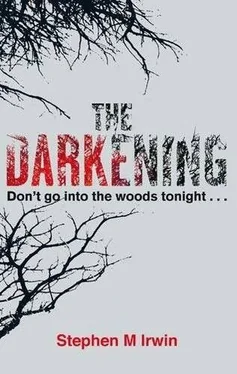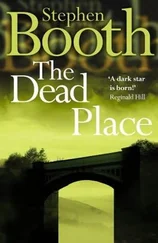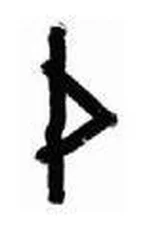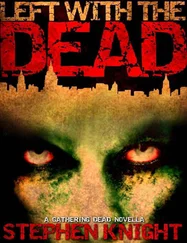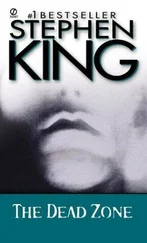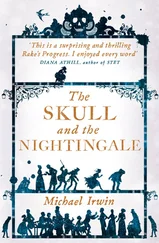Stephen Irwin - The Dead Path
Здесь есть возможность читать онлайн «Stephen Irwin - The Dead Path» весь текст электронной книги совершенно бесплатно (целиком полную версию без сокращений). В некоторых случаях можно слушать аудио, скачать через торрент в формате fb2 и присутствует краткое содержание. Жанр: Триллер, на английском языке. Описание произведения, (предисловие) а так же отзывы посетителей доступны на портале библиотеки ЛибКат.
- Название:The Dead Path
- Автор:
- Жанр:
- Год:неизвестен
- ISBN:нет данных
- Рейтинг книги:5 / 5. Голосов: 1
-
Избранное:Добавить в избранное
- Отзывы:
-
Ваша оценка:
- 100
- 1
- 2
- 3
- 4
- 5
The Dead Path: краткое содержание, описание и аннотация
Предлагаем к чтению аннотацию, описание, краткое содержание или предисловие (зависит от того, что написал сам автор книги «The Dead Path»). Если вы не нашли необходимую информацию о книге — напишите в комментариях, мы постараемся отыскать её.
The Dead Path — читать онлайн бесплатно полную книгу (весь текст) целиком
Ниже представлен текст книги, разбитый по страницам. Система сохранения места последней прочитанной страницы, позволяет с удобством читать онлайн бесплатно книгу «The Dead Path», без необходимости каждый раз заново искать на чём Вы остановились. Поставьте закладку, и сможете в любой момент перейти на страницу, на которой закончили чтение.
Интервал:
Закладка:
“Can I get you something?” the young woman asked. “Water? Tea?”
“What did the little girl die of?” he whispered.
The attendant blinked. “I beg your pardon?”
Nicholas looked across the aisle. The little girl was suddenly in her seat again. Her blouse was whole. She watched Nicholas, eyes unreadable. Her hands, as if with minds of their own, picked up the coloring book and crayon and recommenced their childish business.
Nicholas knew he should just shut up. But the words came of their own accord.
“A little girl just died here, didn’t she?”
The woman stared at Nicholas, her mouth working as she made some decisions. He knew the look: the how-did-he-know-that, is-he-a-reporter, is-he-mental, is-he- dangerous look.
“How do you-” Her words were clipped. No politeness now.
The little girl was coloring her book with tedious slowness. Her face was in shadow. The passenger beside her rolled in his sleep and put his arm right through her head.
The flight attendant straightened her skirt. “I have no idea, sir. Information like that is kept by the airline. I must ask you not to talk about… such things on the flight, sir.”
She glanced once at the empty seat opposite Nicholas, then moved away, a little too fast, up the dark aisle.
Nicholas looked over. The girl’s hands stopped coloring. Her gaze was on his as she started shaking and turning blue again.
He rolled away from her and closed his eyes.
Chapter 2
T he air was cold. Yet this chill was light and fragile, ephemeral. Not at all like the entrenched and leaden cold of a British winter.
Nicholas walked across the car park to the rows of white and silver hire cars, reading the space numbers stenciled on the bitumen. He carried just one small suitcase. He found his car, pressed the remote, popped the trunk.
Overhead, the sky was salted with tiny lights.
Stars. I’ve come back to a city where you can still see the stars.
He turned slowly, scanning the constellations. There it was: the Southern Cross. He had expected the sight of it after so many years would inject a warm tequila rush of nostalgia or a defibrillating jolt of hope. But, no. The stars of the cross stared back, unimpressed by his return. A cold July breeze tugged at his hair.
Nicholas got inside and twisted the car alive.
T he bones of a city don’t change. Perhaps its skin grows tight or flaccid as suburbs grow fashionable or become declasse; crow’s feet spread from pockets-new streets, new arteries into fresh corpulence. But the skeleton of its founding roads, the blood of its river, the skull of the low mountain that looms over it with its thorny crown of television towers like its own blinking Calvary… these things hadn’t changed.
It was nearly eleven. Nicholas drove the almost empty streets, amazed to be moving so swiftly and surely: a tardy San Juan Capistrano swallow in a white Hyundai. He had become so conditioned to the London crush that to see inner-city streets this quiet made him shiver and wonder if everyone else knew some secret apocalypse was about to occur; some rapture to which he wasn’t privy.
In the seventeen years since he’d last seen it, Coronation Drive had grown an extra couple of lanes and tidal-flow traffic signals. But as he glanced across the wide, black waters of the river, the doppelganger lights of factories and apartments winking on its wind-worried surface were so familiar that he could have been a child again, in the backseat of his mother’s Falcon, little Suzette snoring lightly beside him, tucked inside a pile of brightly colored sample bags from the Royal National Show.
Parallel with the river drive ran the train line, its pylons winking into occasional view between new glass office towers and nineteenth-century townhouses resurrected as boutique law firms and restaurants. As he passed them, he said aloud the names of the railway stations, the same he’d rattled through each day returning from art college, each one closer to home and a hurried meal followed by hours in the garage riveting together a chair from coffee cans or weaving a fabric wall from speaker wire-ambitious, excited, even then dreaming of designing in London.
But London had proved nothing to be excited about. At the end of the eighties, it had seemed an endless expanse of dour faces pinched above colorful wide-shouldered jackets; a loud and falsely jolly bustle on a hurtling train heading nowhere in particular. No gyms back then, but a pub every twenty meters. The endless set-backs. The bad bosses. The worse bosses. The dull twist of panic every time you looked in your wallet to pay for a shitty Marks amp; Spencer’s sandwich and wondered how the fuck you were going to meet next week’s scandalous rent. Too many Australians. No sunshine. No work.
But he was nothing if not creative. He found a niche and jumped for it like a street musician at a dollar bill. A friend of a friend told him about a small team looking to cash in on the love for all things Eire and build “authentic” Irish pubs across the southwest.
He rode to their sawdusty workshop in Streatham; after a coffee mug interview, a squint at his resume, and a test of his handshake, he got the job of decorating the pubs’ interiors. It sounded easy. But it took less than an hour strolling through London’s Davies Street antique shops to realize that if he bought his knickknacks in the city, he had the budget to dress perhaps one shelf. It was motoring through little villages in the Midlands, Bedfordshire, and Sussex that Nicholas discovered he had charmed luck sniffing out old curios, furniture, and bric-a-brac. He’d leave London in a hire van on a Monday and potter without a plan, letting the front wheels find their own way onto increasingly narrow roads flanked by drystone walls and watched by edgy sheep and unblinking blackbirds. For the first few months of this unlikely treasure hunting, Nicholas actively appraised the buildings in the villages to calculate which would be most likely to house an elderly soul ready to part with old junk. But experience taught him not to think; simply to let the solid feeling of surety in his midriff tell him which barn, which leaning Tudor, which locked presbytery would yield the rusty lamps, the worn shillelaghs, the dry-wattled accordions, and the beaten valises that London paid a fortune for. Without fail, he was guided to homes where owners, daughters, new tenants, disgruntled landlords, weary widows, and forgetful widowers divested themselves of odds and sods they were happy to see the arse-end of.
He would return to London on a Friday, poorly shaved, with a sore back and bowels clogged by the stodge of fry-up breakfasts, in a van filled with crap that cost perhaps three hundred quid yet was worth twenty times that to his employers and customers. He became Nicholas Close, Master of Old Shit. Need some tattered books, a rusty shotgun, and decrepit fishing gear with a distinctly Gaelic twist? Call Nicholas Close. He’s shameless, mildly charming, and he’ll find it cheap. Oh, and did you hear? He used to be a designer or something.
London had finally, shyly, revealed her lucrative teat. One job alone had paid the deposit on the flat. And that contract had led to a permanent consultancy with a firm that opened Irish pubs in Kuala Lumpur, Dubai, and Santiago. Nicholas had been charged with the dubious task of vivifying new spaces with objects whose original owners were long dead. It was tolerable and various, and the travel was good. He intended to get back to design next month, next financial year, after Christmas.
He met and married Cate. The mortgage had been reduced at a good clip. But the amusing collectibles, the money, the diminishing loan statements, everything, lost its value the instant he walked into the flat in his wet and scraped motorcycle jacket and found why Cate hadn’t answered his call.
Читать дальшеИнтервал:
Закладка:
Похожие книги на «The Dead Path»
Представляем Вашему вниманию похожие книги на «The Dead Path» списком для выбора. Мы отобрали схожую по названию и смыслу литературу в надежде предоставить читателям больше вариантов отыскать новые, интересные, ещё непрочитанные произведения.
Обсуждение, отзывы о книге «The Dead Path» и просто собственные мнения читателей. Оставьте ваши комментарии, напишите, что Вы думаете о произведении, его смысле или главных героях. Укажите что конкретно понравилось, а что нет, и почему Вы так считаете.
